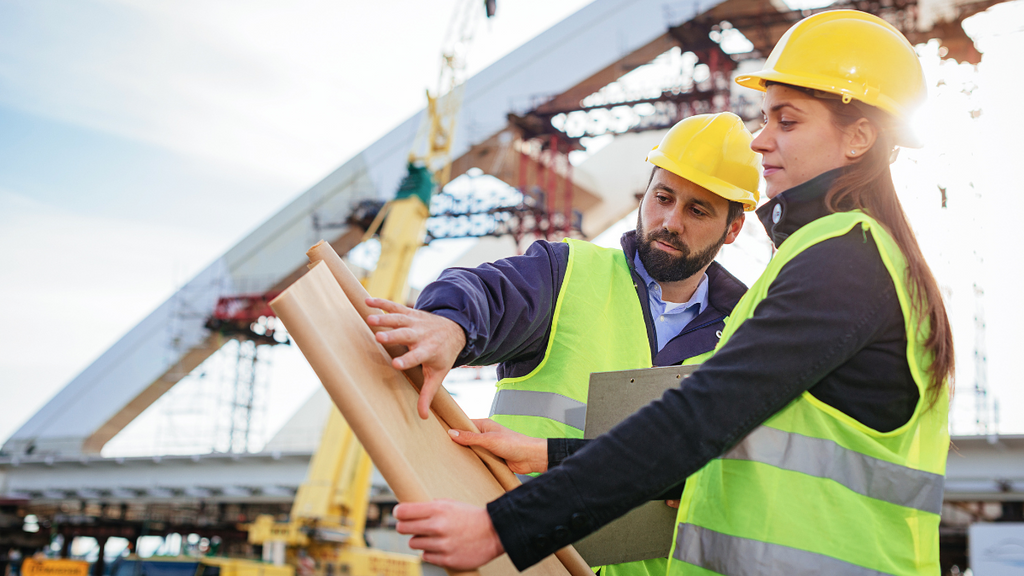Getting My Geotheta To Work
Table of ContentsAn Unbiased View of GeothetaNot known Incorrect Statements About Geotheta Examine This Report on GeothetaAll about GeothetaThe smart Trick of Geotheta That Nobody is Talking About

They perform site investigations, accumulate samples, do laboratory tests, and assess data to assess the suitability of the ground for construction projects - Engineer of Record. Based on their findings, geotechnical engineers give suggestions for foundation design, incline stability, retaining structures, and reduction of geotechnical risks. They collaborate with other specialists, such as engineers, structural designers, and building and construction teams, to make sure that geotechnical considerations are integrated right into the total job style and application
By analyzing the behavior and properties of dirt and rock, they can recognize potential geotechnical threats such as landslides, dirt settlement, or incline instability. Their experience aids stop failures or mishaps that might jeopardize lives and property. Below are some thorough tasks and duties of a geotechnical designer: Site Examination: Geotechnical engineers conduct website examinations to gather data on subsurface conditions.
They analyze the information to comprehend the residential or commercial properties and actions of the dirt and rock, including their strength, permeability, compaction qualities, and groundwater conditions. Geotechnical Evaluation and Design: Geotechnical designers examine the data gathered during website examinations to analyze the security and viability of the site for construction jobs. They execute geotechnical estimations and modeling to evaluate factors such as birthing ability, settlement, incline stability, lateral planet pressures, and groundwater circulation.
Getting My Geotheta To Work
Structure Design: Geotechnical designers play a crucial duty in making structures that can securely support the designated framework. They evaluate the dirt problems and lots needs to establish the proper structure kind, such as shallow structures (e.g., footings), deep structures (e.g (https://disqus.com/by/geotheta/about/)., stacks), or specialized techniques like soil improvement. They take into consideration variables such as settlement limitations, birthing ability, and soil-structure interaction to establish ideal foundation layouts
They evaluate building and construction plans, monitor website tasks, and perform area evaluations to confirm that the design suggestions are followed. If unexpected geotechnical issues occur, they evaluate the scenario and supply referrals for removal or adjustments to the style. Risk Evaluation and Reduction: Geotechnical engineers assess geotechnical hazards and risks associated with the job site, such as landslides, liquefaction, or soil disintegration.

Cooperation and Communication: Geotechnical engineers function very closely with other experts involved in a project, such as engineers, architectural engineers, and construction groups. Reliable interaction and partnership are necessary to incorporate geotechnical factors to consider into the overall job style and building process. Geotechnical designers supply technical expertise, response questions, and make certain that geotechnical needs are satisfied.
7 Easy Facts About Geotheta Shown
Below are some sorts of geotechnical engineers: Structure Designer: Foundation designers specialize in creating and assessing foundations for structures. They analyze the soil conditions, tons demands, and site characteristics to determine the most ideal foundation type and style, such as superficial structures, deep structures, or specialized methods like pile foundations.
They evaluate the aspects affecting slope security, such as dirt properties, groundwater problems, and slope geometry, and create approaches to stop incline failings and alleviate risks. Earthquake Designer: Earthquake designers specialize in assessing and designing frameworks to withstand seismic forces. They examine the seismic risk of a website, assess soil liquefaction capacity, and create seismic layout standards to make sure the safety and security and resilience of frameworks during earthquakes.
They perform field testing, gather examples, and examine the collected information to identify the dirt buildings, geologic formations, and groundwater conditions at a site. Geotechnical Instrumentation Engineer: Geotechnical instrumentation engineers concentrate on monitoring and gauging the behavior of dirt, rock, and structures. They set up and preserve instrumentation systems that keep an eye on aspects such as soil settlement, groundwater levels, incline activities, and structural variations to evaluate efficiency and offer early cautions of possible problems.
How Geotheta can Save You Time, Stress, and Money.
They carry out examinations such as triaxial examinations, consolidation tests, direct shear tests, and leaks in the structure tests to gather data for geotechnical evaluation and design. Geosynthetics Designer: Geosynthetics designers focus on the layout and application of geosynthetic materials, such as geotextiles, geogrids, and geomembranes. They use these products to boost dirt stability, strengthen slopes, supply water drainage options, and control disintegration.
They often tend to be investigative individuals, which implies they're intellectual, reflective, and curious. They are interested, methodical, reasonable, analytical, and logical. Some of them are also social, indicating they're kind, charitable, participating, individual, caring, handy, compassionate, sensible, and friendly - Engineer of Record.
In the office environment, geotechnical engineers use specialized software tools to do estimations, produce styles, and examine data. They prepare records, evaluation project requirements, communicate with clients and employee, and coordinate job activities. The workplace setup provides a helpful environment for study, evaluation, and partnership with various other professionals associated with the project.
The Basic Principles Of Geotheta
They frequently visit job websites to conduct website investigations, analyze geotechnical conditions, and collect information for evaluation. These sees include taking a trip to different locations, often in remote or challenging surfaces. Geotechnical designers may execute soil sampling, conduct examinations, and display building and construction tasks to ensure that the geotechnical facets of the task are being applied properly.
Geotechnical designers likewise work in specialized geotechnical labs. Geotechnical research laboratory engineers click here now work extensively in these atmospheres, handling screening equipment, running instruments, and videotaping information.